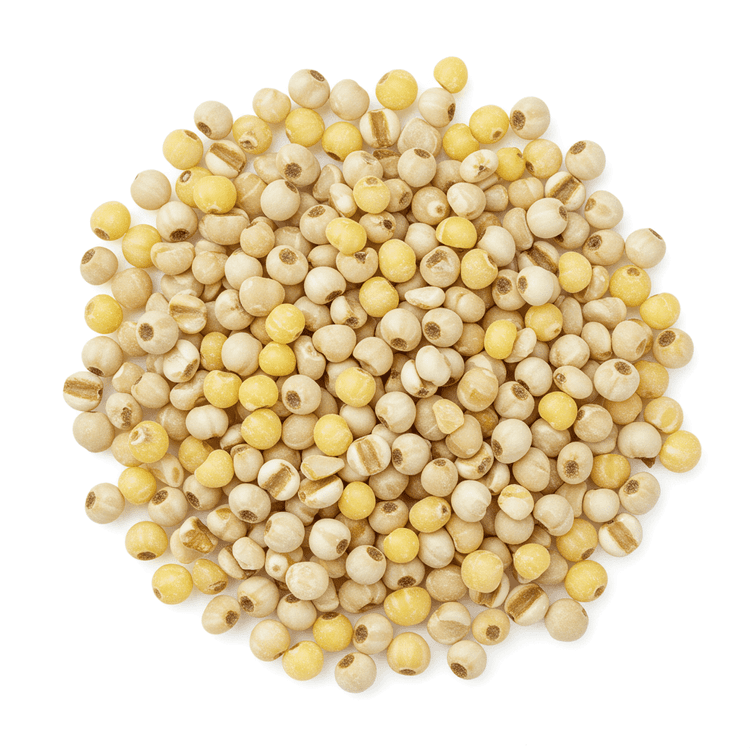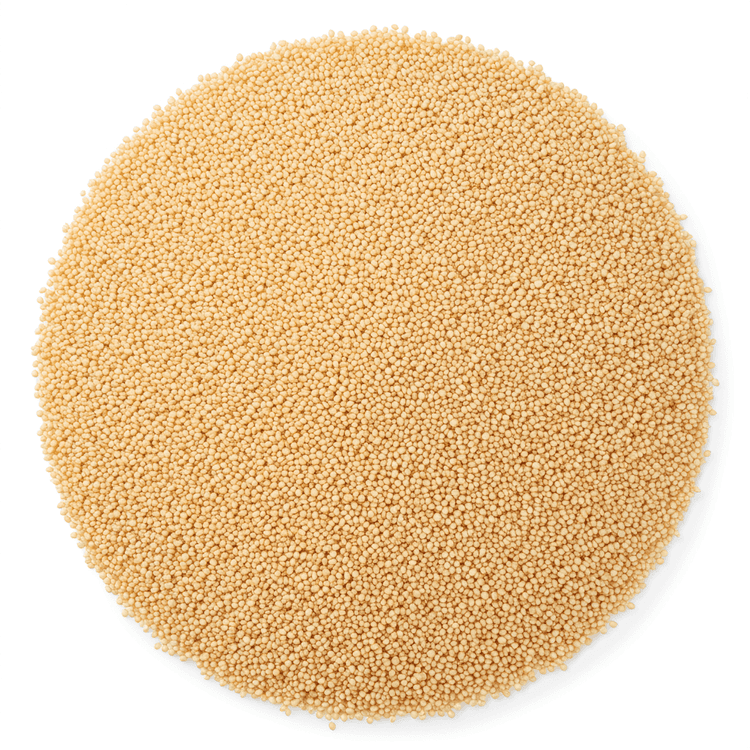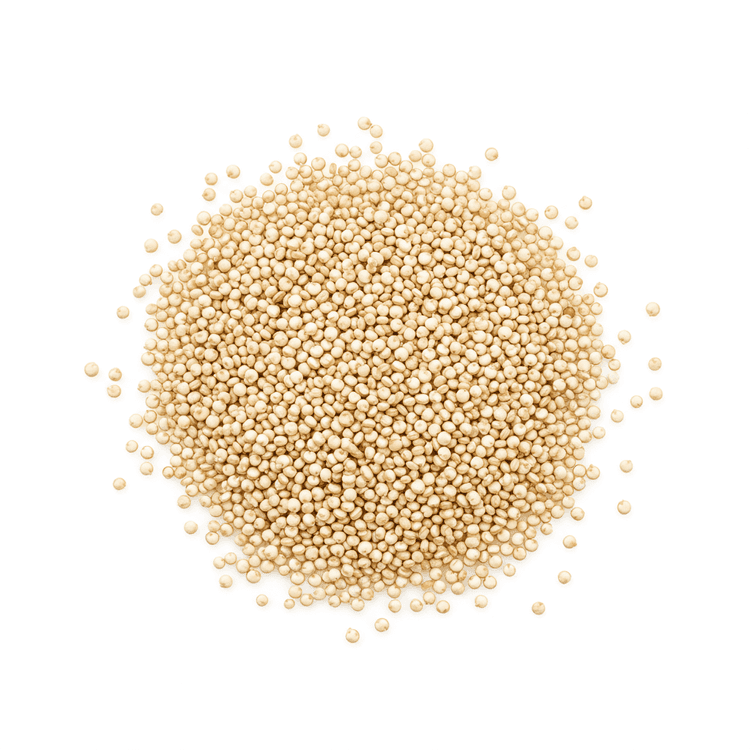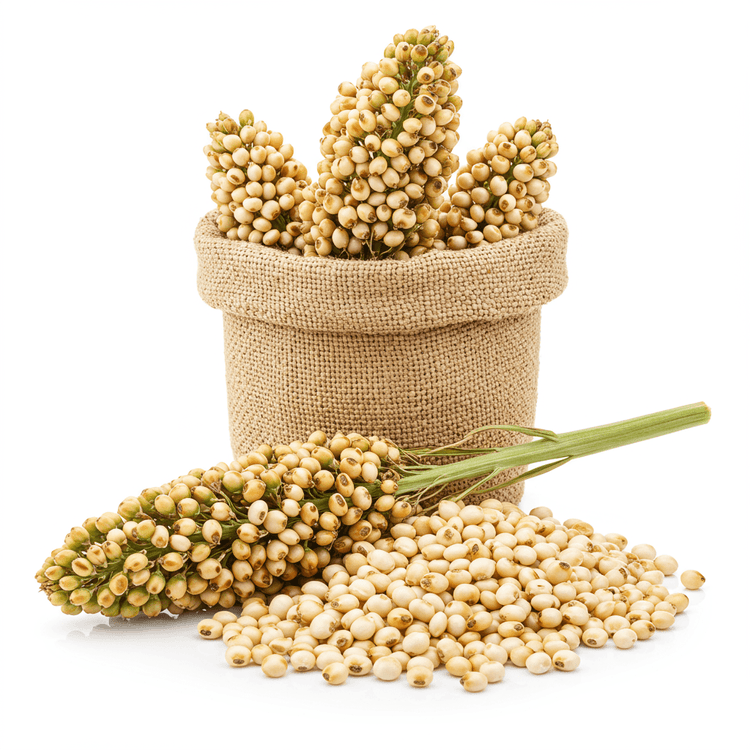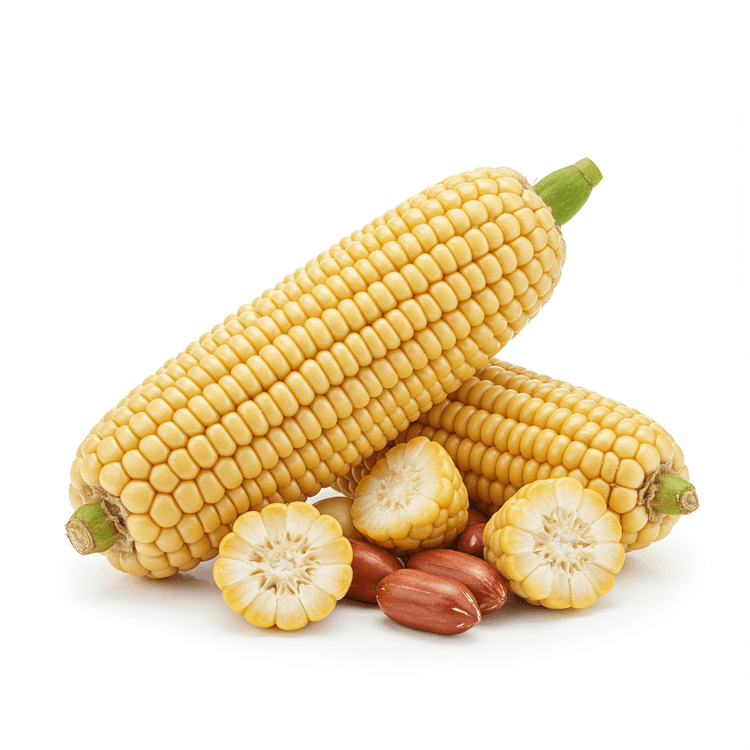
Guinea Corn
Guinea corn, also known as sorghum, is a versatile and nutritious cereal grain. It has a mild, slightly sweet flavor and a chewy texture when cooked. The color of guinea corn varies, ranging from white and yellow to red and brown, depending on the variety. Whole grain sorghum is also naturally gluten-free, making it a popular alternative for those with gluten sensitivities. As a nutrient-dense grain, sorghum can be used in various dishes to add dietary fiber, protein, and essential minerals.
Common Uses
- Use ground guinea corn flour for gluten-free baking to create bread, pancakes, and muffins with a slightly nutty taste. It can be used on its own or blended with other flours for improved texture.
- Cook whole grain guinea corn similarly to rice or quinoa as a base for salads, grain bowls, or side dishes. Its chewy texture holds up well in dressings and sauces.
- Pop sorghum grains like popcorn for a healthy and crunchy snack. It creates smaller kernels than popcorn but offers a similarly satisfying crunch and flavor.
- Mill guinea corn into flour and use it to create porridge or gruel, a comforting and nutritious breakfast option, particularly popular in some African cultures.
- Incorporate guinea corn into soups and stews to add thickness and substance. The grains absorb flavors from the broth, enhancing the overall taste and nutritional value.
- Ferment guinea corn to brew traditional beverages. The fermentation process imparts unique flavors and can create mildly alcoholic or non-alcoholic drinks, depending on the specific process.
Nutrition (per serving)
Nutrition (per serving)
Calories
329.0kcal (16.45%)
Protein
10.9g (21.8%)
Carbs
72.1g (26.22%)
Sugars
1.5g (3%)
Healthy Fat
2.3g
Unhealthy Fat
0.5g
% Daily Value based on a 2000 calorie diet
Nutrition (per serving)
Calories
329.0kcal (16.45%)
Protein
10.9g (21.8%)
Carbs
72.1g (26.22%)
Sugars
1.5g (3%)
Healthy Fat
2.3g
Unhealthy Fat
0.5g
% Daily Value based on a 2000 calorie diet
Health Benefits
- Rich in antioxidants, helping to combat oxidative stress and reduce the risk of chronic diseases.
- Good source of dietary fiber, promoting healthy digestion and preventing constipation.
- May help regulate blood sugar levels due to its complex carbohydrates and slow digestion.
- Contains essential minerals like iron and phosphorus, contributing to energy production and bone health.
- Gluten-free grain option, suitable for individuals with celiac disease or gluten sensitivity.
Chefadora AI is here.
Experience smarter, stress-free cooking.
Storage Tips
Store guinea corn in an airtight container in a cool, dry, and dark place to maintain its quality and prevent spoilage. Whole grains can typically be stored at room temperature for several months. Cooked guinea corn should be refrigerated promptly and consumed within a few days. For longer storage, cooked guinea corn can be frozen in airtight containers or freezer bags for up to several months. Ensure it's cooled completely before freezing to prevent freezer burn.
Marnirni-apinthi Building, Lot Fourteen,
North Terrace, Adelaide, South Australia, 5000
Australia
